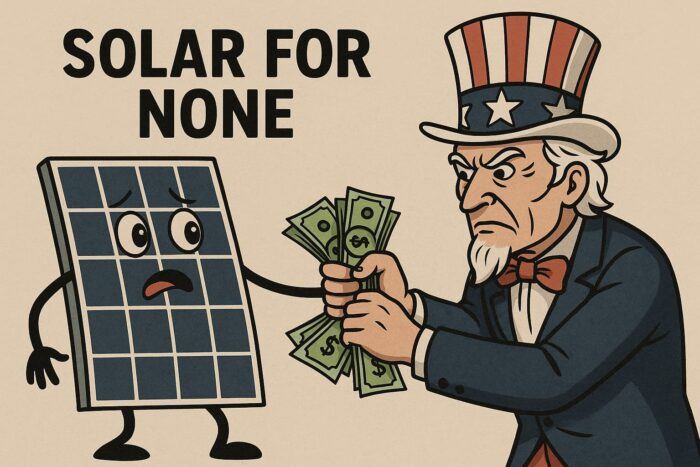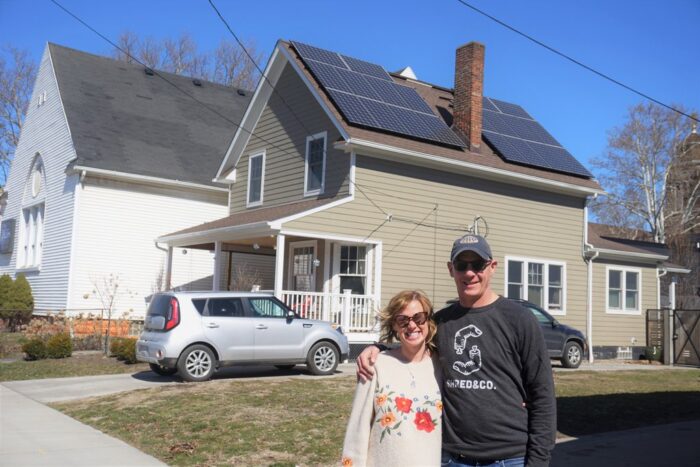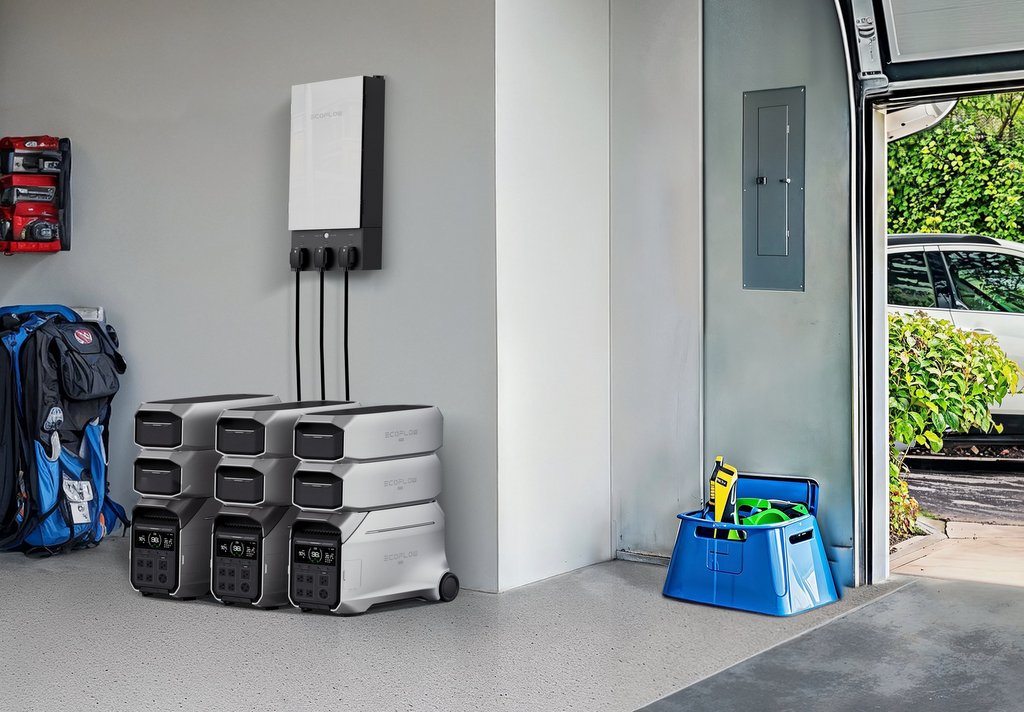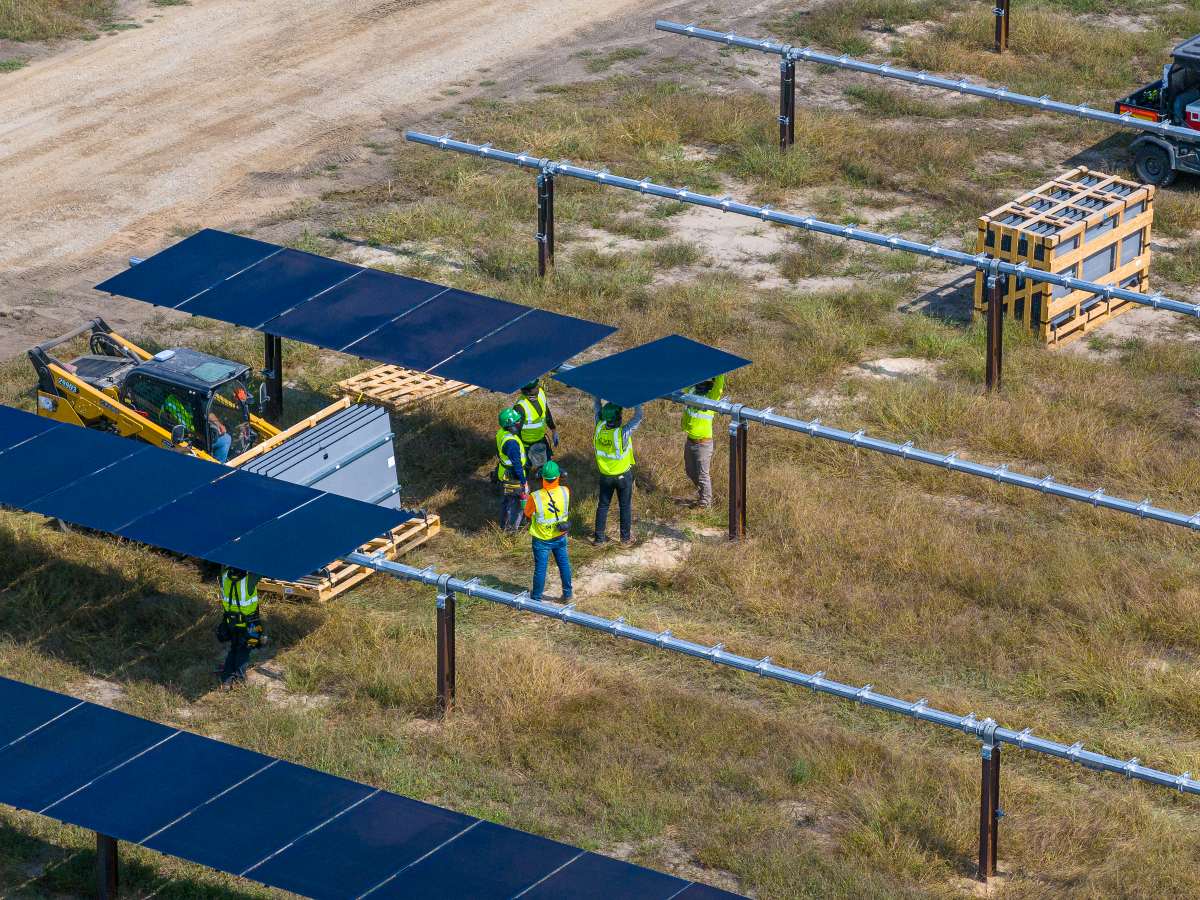Solar for None: Solar United Neighbors shows what’s at stake in EPA’s $7B clawback
Nonprofit says Solar For All funding cuts strand families, stall projects, and strip away trusted savings models for low-income communities

When the EPA once again canceled Solar For All via a social media post — $7 billion in legally committed funds — non-profit organizations like Solar United Neighbors (SUN) saw years’ worth of work abruptly halted.
Since 2007, SUN has helped more than 11,000 families go solar through its bulk purchase groups, accounting for more than 92 MW of solar installed. That work directly helps thousands of lower-income taxpayers save on energy bills, while also creating the foundation for sustainable employment.
To understand exactly how much is being lost in the Solar For All funding cuts, as part of our ongoing “Solar For None” series, we reached out to Ben Delman, editorial director of SUN, to understand the SUN co-op model, and the big plans that are now on hold thanks to the EPA’s decision to renege on its commitment to fund Solar For All.
The power of cooperative bulk buying

SUN is a non-profit that organizes and runs bulk purchase solar programs. By participating in the program, homeowners learn about solar energy, the technology, the install process, and financing. SUN programs usually take one of two forms:
The solar co-op. SUN works in a county or city to bring anywhere from 25 to 100 folks together to learn about solar. The SUN team solicits bids from local installers, and a committee of co-op members selects the installer that best fits the group’s criteria. Each homeowner purchases their own system, but at a much lower cost thanks to the bulk purchase and competitive bidding process.
Switch Together. SUN has also started working with IChoosr, a European company that runs larger-scale bulk purchasing with municipalities and city governments.
Installers love SUN programs because they aren’t starting from square one with customers, Delman says. “We’re able to say, ‘not only are these people eager to go solar, but we’ve helped really educated them about the technology and the process to go solar.’”
That translates into lower soft costs, which can mean lower overall system costs. “Being able to simplify the permit process – the installer is not having to make a bunch of different trips down to the county permitting office. You can do that in bulk. You can order panels and other materials in bulk. There’s definitely value for both the installer side and customer side.”
Income-qualified projects in action
Most participants in solar co-op and Switch Together programs pay or finance their systems with their own money. Additionally, SUN has been able to include families without the upfront capital to go solar.
“Our group-buying model is a great way to educate anyone about going solar,” Delman says. “We were really eager to bring it to bear for communities that had been locked out of access to solar. For that work, we look to grant funding or some kind of outside funding source to help people defray that upfront cost for solar.”
In Washington, D.C., SUN helped design the Solar for All program (different than the IRA Solar For All funding). “For income-qualified co-op participants, we used grant money from the D.C. Solar for All program and five years’ worth of Solar Renewable Energy Credits (SRECs) to pay for their solar system upfront. Income-qualified participants owned their solar systems from day one and were able to immediately benefit from their electricity savings.”
In Duluth, SUN worked with the Run Roof Housing land trust. “We’ve worked with them to figure out if there was a way through Direct Pay, where a nonprofit could take on the tax liability to find another way to pass those benefits along for participants. In our model, we really want to, as much as possible, make it so that the folks who receive these solar systems are able to own them, so that they can benefit from that years down the road.”
What Solar For All was set to deliver
Volume is really important for this type of work, Delman says.
“Not just because we’re helping hundreds of thousands of families benefit from solar energy, and save money, we’re also creating jobs and really transforming the market in a way that benefits everybody. Solar For All lowers the cost of solar for everybody and also lowers everybody’s energy bills because we’re putting so much more electricity back onto the electric grid.”
SUN was actively advising around 24 programs across the country that were set to use Solar For All funding, with direct projects in Florida, Texas, and Indiana. “We were looking forward to working on the program in Florida where we were projecting about 6,000 families going solar there.”
Ongoing maintenance contracts were built in. “The neat thing about Solar For All is each grant recipient had the ability to tailor their program to the local needs of the community. In some places, you’re seeing community solar, or you’re seeing multifamily in addition to just the single-family homes.”
In Houston, they designed “Hub Homes” — resiliency centers with solar and batteries. “If and when the power goes out, they can open up their homes to neighbors to like charge their phones and keep cool and keep medical equipment running. That’s a community that gets bad weather, so being able to design a program that fits their needs was a really good opportunity.”
A legally obligated program
Illegal. That’s how SUN and many others are describing this action by the EPA to cancel Solar For All funding.
“This money is obligated. If you look at the Congressional record, the folks in Congress understood that this money had already been obligated and couldn’t be clawed back.”
So, does that mean there is a chance to get the funds recommitted?
“There’s really two groups to watch here,” Delman says. “One is Congress. Will they defend their power of the purse? Two is the courts, and if they rule, as they have previously, that for funds that are obligated, you can’t pause or call those back.
“We’re hopeful that this is just another delay, and that ultimately this really smart investment is going to be put into the market and help folks save money while creating good jobs.”
Breach of trust
Without access to the funds for an extended period of time, even if suddenly Congress or the courts fix this, how long can some of the programs and projects-in-planning wait?
“It’s a challenge. In Florida for example, we started reaching out and pre-qualifying folks. And so to say, ‘Oh, actually, sorry, we’re not doing this anymore,’ is a pretty big breach of trust for communities that very often do feel the short end of the stick on these kinds of things. They are, frankly, rightfully wary of somebody coming in and saying, ‘hey, we’ll give you free solar.’”
This sudden stop of Solar For All, through no fault of anybody’s, could accidentally contribute to that same image. Here’s another false promise.
The situation feels unfair for so many – forgotten and voiceless communities, nonprofits, small businesses, and everyone beyond that about to start paying higher electric bills.
Delman ends our chat with a call for action: “For your audience, we’re encouraging folks to reach out to their member of Congress. Let them know, educate them, this is something that’s happening, this is money that was appropriated. You as Congress have power of the purse. Also, by the way, this is a great way to lower energy costs in your district.”





Comments are closed here.